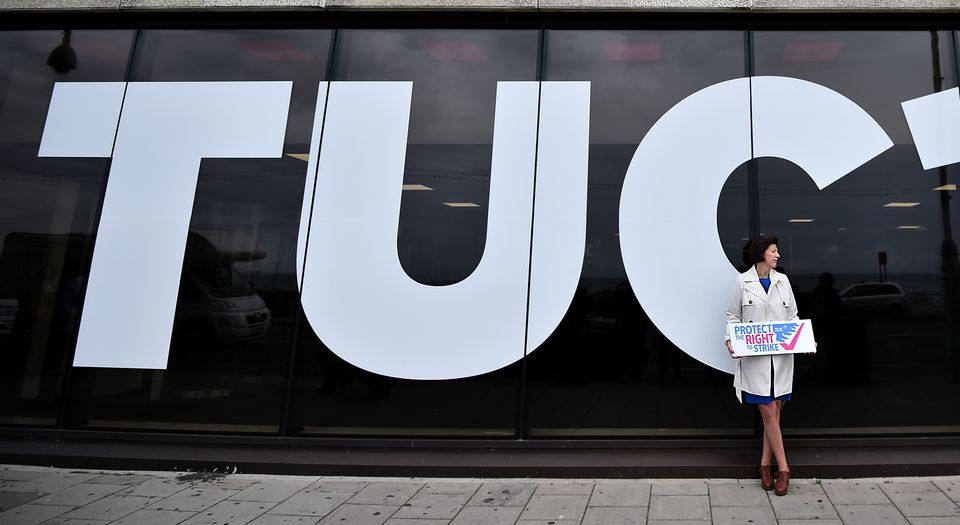Workers want out of the EU – will the TUC listen?
Trade Unionists Against the EU on why the trade-union movement must embrace Brexit.

The TUC is in real danger of losing its credibility and influence. If it continues its attempt to subvert the result of the EU referendum, it will become irrelevant to the political discourse, as irrelevant as the Lib Dems are today. In the EU referendum, workers voted Leave with a clear majority. This was an instruction to parliament to take the necessary steps to leave the EU. It was also an instruction to workers’ other parliament, the TUC, to do the same. Parliament voted for Article 50 by a large majority, with support across both main parties, and is now preparing to repeal the 1972 European Communities Act. The TUC continues to equivocate. That cannot continue.
Those who failed to convince workers to vote Remain in the EU referendum are today arguing that for the sake of jobs and prosperity we need to remain in the Single Market, or at least keep that option open. This is ironic, to say the least, since the Single Market is a byword for mass unemployment and lost opportunities, especially for the youth. In May this year, the rate of unemployment in the EU stood at 9.3 per cent – a total of 20million women and men out of work, with some member states like Spain and Greece suffering rates of 17.7 and 25.5 per cent respectively. ‘Making jobs and prosperity a priority’ is a reason for leaving the Single Market, not staying within it.
Leaving the Single Market would give us the opportunity to implement policies otherwise outlawed by the EU. What is more conducive to creating jobs than borrowing to invest in the future, providing state aid to British industry, protecting British manufacturing against cheap imports, and prioritising British firms when it comes to government procurement? What would improve our prosperity more than having the freedom to trade with other nations on terms that are beneficial to our national economy, control our coastal waters and revitalise our fishing fleet?
Continued membership would drive a coach and horses through the Labour manifesto, which was supported by the trade unions and the TUC. Measures such as bringing the railways back into public ownership, subsidising British industry, changing procurement rules to benefit British contractors, and halting the creeping privatisation of the NHS – measures that trade unions and the TUC have championed – will not be possible if we remain a member of the Single Market. Bringing private enterprises into public ownership is restricted by Article 106 of the Lisbon Treaty. And the European Court of Justice has decreed that Article 106 gives private companies the right to argue before their national courts that services must remain open to private-sector competition. Those who cite German and French state-owned railways as examples of nationalised industries within the Single Market miss the point. These were in state hands before 1993, when the Single Market was established. Had they been in private hands, it would not have been possible to re-nationalise them.
The support Labour received at the General Election would not have been possible had it not promised to end freedom of movement. In fact, the moment the Labour manifesto was amended to include the line ‘freedom of movement will end as we leave the European Union’ was the moment Labour’s fortunes began to turn and Theresa May’s campaign began to unravel. This change seemed to commit Labour not just to leaving the Single Market, but to leaving the Customs Union as well. This allowed Labour to put forward an industrial strategy based on anti-austerity, nationalisation and support for British industry, without being accused of hypocrisy and deception. During the campaign, when both main parties coalesced on leaving the Single Market, attention quickly moved to the economy, where Labour offered hope and the Tories offered despair. Hope got traction, especially with the younger generation.
There are now concerted efforts to bounce the Labour Party back into supporting Britain’s continued membership of the Single Market. If it succeeds, and Labour uses its parliamentary strength to derail the passage of the Withdrawal Bill and other legislation necessary to leave the EU, it will be severely punished by workers at the first opportunity.
The TUC has a chance to redeem itself. It may be its final chance to do so before workers turn their backs on it. Trade unions have to decide whether they are serious about pursuing the policies they favoured for decades – an industrial strategy that reflects the views and interests of their members. If they are to be true to their members, they must reset the TUC towards a policy that chimes with workers’ wishes – namely, leaving the EU, the Single Market and the Customs Union, and ending the free movement of labour. If the TUC is to regain some of its dignity and influence among workers, this is what it must do.
Fawzi Ibrahim is national officer of Trade Unionists Against the EU.
On Monday 11 September, TUAEU is holding a fringe meeting at the TUC in Brighton, titled, ‘Is socialist planning compatible with the Single Market?’. Find out more here.
Picture by: Getty
To enquire about republishing spiked’s content, a right to reply or to request a correction, please contact the managing editor, Viv Regan.








Comments
Want to join the conversation?
Only spiked supporters and patrons, who donate regularly to us, can comment on our articles.